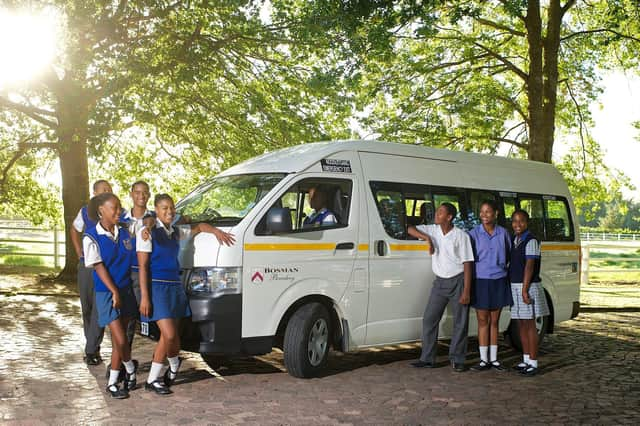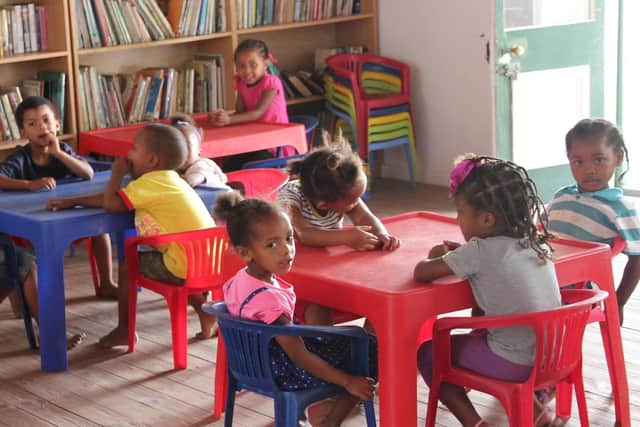Why we should be buying Freetrade wine from South Africa


With brilliant timing, in the midst of Fairtrade Fortnight, the Co-op, with its thousands of shops and convenience stores, has announced that from now on, all its South African wines will be Fairtrade. What exactly does this mean for the quality and price of the wine on offer, and does it really have an effect back in the vineyards of South Africa?
The Co-op has become the largest retailer of Fairtrade wine in the world. It started to champion the movement 25 years ago and now has 57 Fairtrade wines, 45 from South Africa and others from Argentina.
Advertisement
Hide AdAdvertisement
Hide AdFairtrade is a simple concept. The people who make a product should get a fair price for it and fair wages. In addition, there is a premium which is paid directly back to the community for them to spend exactly how they wish. This doesn’t mean they spend it on parties and fun. There are examples of schools and community centres being built, wells dug and healthcare put in place. These are life-changing improvements to communities.


Of course, it shouldn’t be necessary. There should be poverty safety nets, water in the taps, a transport network, schools and free healthcare for all, but some countries don’t work like that, and we can either wait until it happens, or we can support projects that instigate change, while at the same time reaping the benefits of good quality products.
Fairtrade wines used to be fair to middling quality. There was the feeling that buying an occasional bottle would satisfy the buzz of being charitable while providing an adequate bottle of wine. The price/quality ratio wasn’t quite right.
Not any more. “We get the pick of the crop,” said Edward Robinson, wine buyer for the Co-op with a particular responsibility for Fairtrade. ‘The producers have realised that we are in this for the long haul. We are not chopping and changing like some retailers – we have supported the producers for years, and the money has fed back into the community. It means that workers stay, their experience builds and the overall quality of the wine increases.”
Advertisement
Hide AdAdvertisement
Hide AdConverting to Fairtrade takes time and organisation. The producer must put in certain standards of premises, staff welfare and working practices which are audited by a local organisation. As for the Fairtrade premium which goes straight back to the workers, there has to be a committee who decide what to do with it. On one farm they tucked that money away for several years and then built a community centre with a creche for youngsters and classrooms and computers for after-school care and homework. This has had a ripple effect within the farming community. When one farm converts to Fairtrade, then others follow.
The Co-op has also contributed investment with Fairtrade in a start-up winery called Fairroots in the Olifant’s River region. With 34 hectares of land, and mentoring from a local winery, this will eventually produce wines that are Fairtrade from the ground up.
I have visited several projects where Fairtrade investment has lifted living standards and education. From hearing nursery songs in a creche to seeing a young girl get a good, steady, responsible job, the stories are heart-warmingly wonderful.
In Argentina, Fairtrade has transformed the community who work in one of the country’s largest wine co-operatives, La Riojana. It has helped fund the digging of a well which now supplies clean water to the population. This has improved the health of workers, who now turn up for work reliably. They have also built a secondary school for 650 pupils which is so popular that people are now moving to the area instead of drifting away.
Advertisement
Hide AdAdvertisement
Hide AdThe Co-op is not the only retailer putting Fairtrade wines on the shelves, so look for the logo on bottles and pick one up this weekend, and maybe next weekend too. And when you drink that bottle of great value, excellent quality Fairtrade wine, just think about the child who is now riding the several miles to school on a bus instead of walking down a long dusty road.
Here are some of the best choices when it comes to Fairtrade wines.
Fairtrade Chenin Blanc 2021, South Africa, Waitrose, £6.99: With aromas of honeysuckle and a taste of crunchy green apple backed by citrus freshness, this is a wine to keep in the fridge for an end of the day sip.
Co-op Fairtrade Irresistible Organic Malbec 2020, Argentina, £7.50: This is the wine from “the pick of the crop” at La Riojana in the beautiful Famatina Valley in north-west Argentina. Consistently good, it is full of plum and cherry fruit, with savoury depth and enough power to cope with a winter casserole or a spring barbecue.
Advertisement
Hide AdAdvertisement
Hide AdClassics Pinotage 2020, South Africa, Marks & Spencer, £8: Full of ripe plums and dark cherries with a soft, supple structure and with absolutely no trace of the tar note that used to blight Pinotage wines. Deliciously enjoyable.
Taste the Difference Journey’s End Chardonnay 2020, Sainsbury’s, down from £10 to £8.50 until Tuesday: Ripe, rounded melon and peach fruit, with a clear citrus finish. Part of the wine has been aged in oak adding depth and character, not splinters.
Bosman Adama Fairtrade Red 2019, South Africa, Co-op, £10: This comes from a property where the owners realised that over the 150 years they had been there, many of their 260 workers had also been there, generation after generation. So they set up a trust and gave 30 per cent of their farm to the trust which they called “Adama”, after one of their longest-serving workers. With high standards of welfare, a school and healthcare, Bosman is a shining light in South African wine. This wine is terrific, made from a real mix of varieties, with the deep robust flavours of Shiraz and Mourvèdre up front and Cinsault, Grenache, Primitivo and Nero d’Avola adding complexity.
Bosman Adama Fairtrade White 2020, South Africa, Co-op, £10: Not just Fairtrade but organic too, this is a blend of Chenin and Grenache Blanc giving a crisp, rounded Chenin, with streaks of lime, honeysuckle and ripe apple fruit.